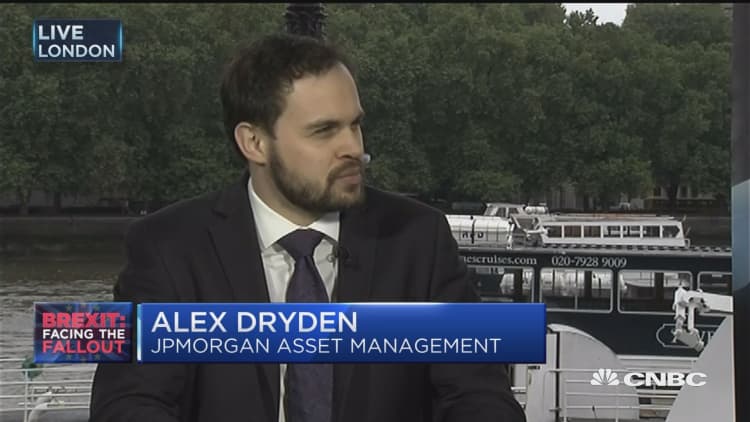The U.S. dollar fell against the British pound and the euro on Tuesday as the market took a breather and potential profit-taking took place after two days of a brutal selloff in sterling and the euro sparked by Britain's vote to leave the European Union.
Analysts said traders took some profits on short bets against sterling and the euro in the wake of the British referendum. The rebound was slight compared to the two-day plunge following the vote, however, with sterling still down more than 10 percent from its closing price on June 23.
"Given the sizable movements we saw over the last few days, it would be pretty reasonable to expect that there could at times be periods of stability or profit-taking," said Eric Viloria, currency strategist at Wells Fargo Securities in New York.

Sterling was last up 0.66 percent against the greenback at $1.3224, regaining some ground after hitting a 31-year low of $1.3122 on Monday. Sterling hit a session high of $1.3421 earlier. The euro was last up 0.23 percent against the dollar at $1.1043 after hitting a 3-1/2 month low of $1.0909 on Friday.
The pound's two-day slide on Friday and Monday was the biggest in the post-1973 floating exchange rate era and came as UK bank shares lost a third of their value in two trading sessions.
The dollar index, which measures the greenback against a basket of six major currencies, was last down 0.23 percent at 96.33, after posting its strongest two-day gain since Sept. 2008 on Friday and Monday as traders sought the greenback for its relative safety.
The riskier, higher-yielding was last up 0.12 percent at $0.7355 on the greater calm in markets and risk appetite, while the dollar was last up 0.8 percent against the safe-haven yen at 102.76 .

Despite the temporary relief in currency markets, uncertainty remained over the fall-out from the Brexit vote. Investors' focus was on the first EU summit since the vote on Tuesday, which British Prime Minister David Cameron will attend. He will be excluded from the second day of talks as the other 27 leaders discuss the fallout from Brexit.
Analysts said the tone from the summit would give an idea of how difficult Britain's negotiations will be once Article 50 of the EU's Lisbon treaty, which governs the procedure for a country to leave, is triggered.

